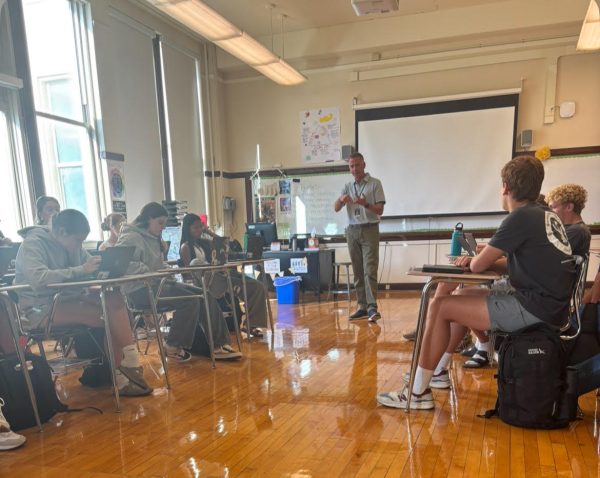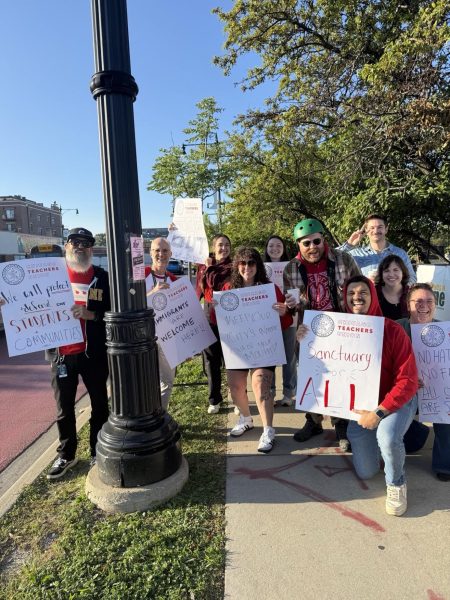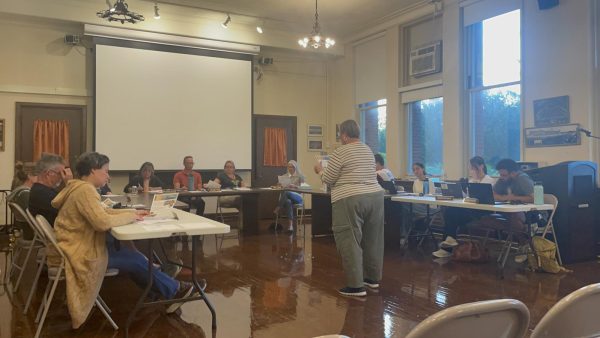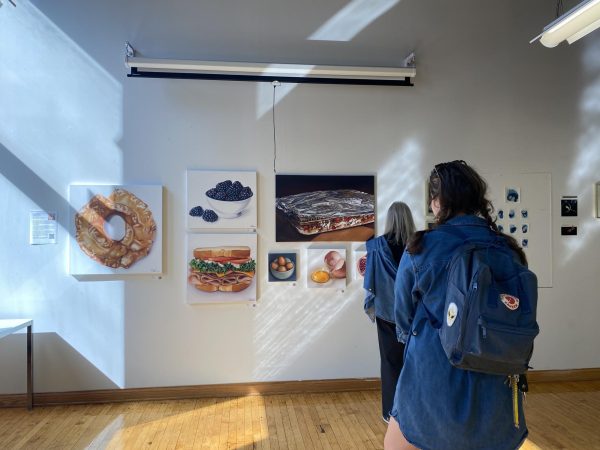Celebrating 2 years of aquaponics elective
The scent of plants, fish, and soil greet the rush of students in dirty smocks entering the Aquaponics lab. Since its opening in 2012, Aquaponics has grown in the past two years, more so than most classes at Lane.
Lane is known across the city for offering unique courses, and Aquaponics is one of the most innovative. Aquaponics teaches students how to create sustainable forms of agriculture. The plants are grown under “grow lights” which produce the necessary amount of light needed for photosynthesis. The plants are watered and fertilized by a special fish tank that is connected to the grow bed. These fish then produce essential nutrients for the plants in the form of their waste. The water from the tank then is fed through a tube, strainer, and finally poured into the grow bed.
Aquaponics is made up of two classes, Aquaponics I and Aquaponics II. Edmond Fitzgerald, Div. 588, has been in both classes, and actively participates outside of class as well. Fitzgerald hopes to go into environmental science or biology in College, and feels that he has greatly benefited from the class.
“This is something I could do for the rest of my life. I’m really happy I got to experience it in high school,” Fitzgerald said.
In 2012, as part of Lane’s renovations of the 1st floor, the dilapidated science room that was in room 126, was chosen to become the new Aquaponics lab. The floors were redone, new lights were put in, and the large tubs of plants and water were set up. After a year of work, the class was opened and students began operating the lab.
With all of this growth, Lane has not only sprouted the seeds of many new plants, but also the minds of future biologists and environmental scientists. One such student is Tess Conway, Div. 558. Conway has been in the class since her junior year began in 2013, and has seen Aquaponics grow from a start up to the large class that it has become.
“I just love coming to class every day,” Conway said.
Conway remembers her first semester vividly.
“It was just a lot of class work for the first few weeks. I wanted to use the lab so badly, but we only went in there like once a week,” Conway said.
The first semester of Aquaponics is almost all classroom and text based. Students learn biology, environmental science, and a bit of Chemistry as well. This is to give the students the insight into how to successfully grow and sustain their own plants. (insight into how the system works basically).
After the first semester is complete, students begin to go into the lab more often and are assigned lab based projects. The students also learn in depth about the fish that help their plants grow.
Aquaponics II is a more independently conducted class. Students are split up into groups where they receive a group grow bed. Individual students are then given their own jobs in the group. Responsibilities include tending to the fish, getting mulch, and keeping pests from getting to the plants.
Conway was given the task of pest manager. She has to make sure that the plants were able to grow without the interference of bugs eating or making a home out of the plants.
This is not an easy task, and Conway admits to experiencing stress over her job in the class. Despite this however, she feels that the class is still very rewarding and she still is happy that she’s involved with the program.
Your donations directly fund the Lane Tech student journalism program—covering essential costs like website hosting and technology not supported by our school or district. Your generosity empowers our student reporters to investigate, write, and publish impactful stories that matter to our school community.
This website is more than a publishing platform—it's an archive, a research tool, and a source of truth. Every dollar helps us preserve and grow this resource so future students can learn from and build on the work being done today.
Thank you for supporting the next generation of journalists at Lane Tech College Prep!

Patrick Reynolds is a photographer and online editor for The Warrior. He is interested in politics, being active (biking and running) and all things automotive...




